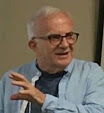Religions have contributed to this depressing phenomenon in obvious ways. We exacerbate polarizing situations when we allow ego and expediency to overcome the fundamental thrust toward unity, and the values of humility, respect, forgiveness and compassion at the core of every faith. One of the essential roles faith communities can play, however, is to question prevailing paradigms – in this case, the paradigm of polarization.
Robert Wright has synthesized a vast array of biological, anthropological, and historical data to suggest that a “non-zero-sum dynamic” crucially shaped the unfolding of life on earth and brought us to our present state of being. If this is so, how can we turn inter-group conflict away from “your victory is my defeat” and toward a more imaginative understanding of our common humanity in the face of the daunting issues we face?
How can our mutually threatening “identities” become mutually enriching instead? How can we learn to see our identities as intersectional manifestations, provisional processes, and uniquely given to share? How can we develop enough confidence to loosen our tenacious grip on this or that position and come to recognize that all identities are incomplete, all imperfect, and all in need of supplementation? What fears, ambitions or other obstacles prevent us from reaching out to the “other” side? What unique resources do our faiths offer for precisely this kind of challenge?
© Budd Friend-Jones













